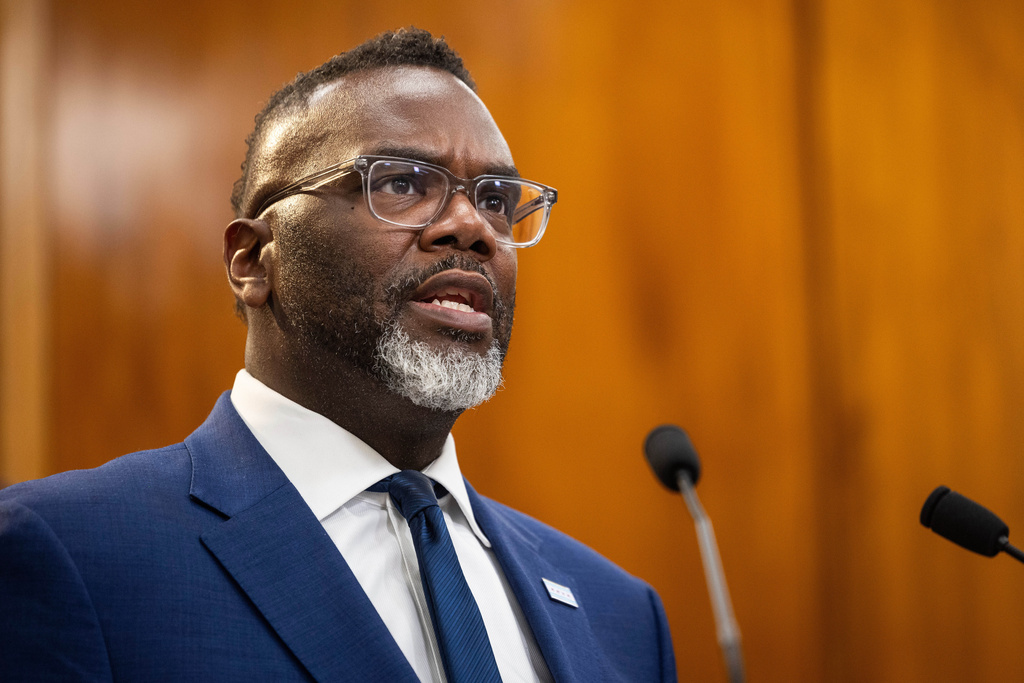CHICAGO (AP) — A federal judge in Illinois rejected a lawsuit from the Trump administration that aimed to undermine Chicago’s rules limiting the collaboration between local police and federal immigration authorities.
The lawsuit, brought to court in February, contended that Chicago’s sanctuary laws, which are in place in the country’s third-largest city, impeded federal immigration actions.
According to the suit, these local regulations contradict federal guidelines by stopping cities from sharing crucial immigration data with federal officials, ultimately preventing immigration agents from locating individuals who could be deported.
Judge Lindsay Jenkins of the Northern District of Illinois agreed with the arguments put forth by the city’s attorneys and dismissed the lawsuit.
Chicago’s Mayor Brandon Johnson expressed his satisfaction with the ruling, stating that public safety improves when police prioritize the community’s concerns rather than collaborating with federal immigration agencies.
“This ruling affirms what we have long known: that Chicago’s Welcoming City Ordinance is lawful and supports public safety. The City cannot be compelled to comply with the Trump Administration’s reckless and inhumane immigration policy,” he remarked in an official statement.

Illinois Governor JB Pritzker welcomed the decision as well, posting on social media, “Illinois just beat the Trump Administration in federal court.”
Both the Justice Department and the Department of Homeland Security did not immediately respond to requests for comments on this ruling.
This litigation is part of a broader strategy by the Trump administration, which has initiated multiple lawsuits aimed at challenging state or local governance that hinders immigration enforcement activities. Similar lawsuits have been filed against policies in Los Angeles, New York City, Denver, and Rochester, New York, and in May, they filed against four municipalities in New Jersey.
The heavily Democratic stronghold of Chicago has maintained its status as a sanctuary city for years and has enhanced its protective measures, particularly during Trump’s first term in 2017. In that year, the then-Governor Bruce Rauner, despite being a Republican, enacted broad statewide sanctuary protections that went against the party’s prevailing sentiments.
Interestingly, there’s no established definition for what qualifies as sanctuary policies or sanctuary cities; generally, these terms relate to guidelines limiting local cooperation with Immigration and Customs Enforcement (ICE), which enforces the country’s immigration laws but occasionally looks to state and local authorities to assist in its efforts.




















